Wilmslow Road, Fallowfield, Manchester, Manchester, M14 6NL
The railway reached Fallowfield in 1891, with Fallowfield station opening on 1 October. The following May, the Great Central Railway extended the line to Sheffield. The driving force behind the Great Central was its general manager, Edward Watkin, whose ambition was to link Manchester and Sheffield with the expanding markets of Continental Europe. The station closed to passengers in July 1958, but the railway line remained in place for another 30 years, used by freight and express trains. The Great Central occupies the ground floor of a retail/residential block built over the railway lines.
An illustration and text about the Great Central railway.
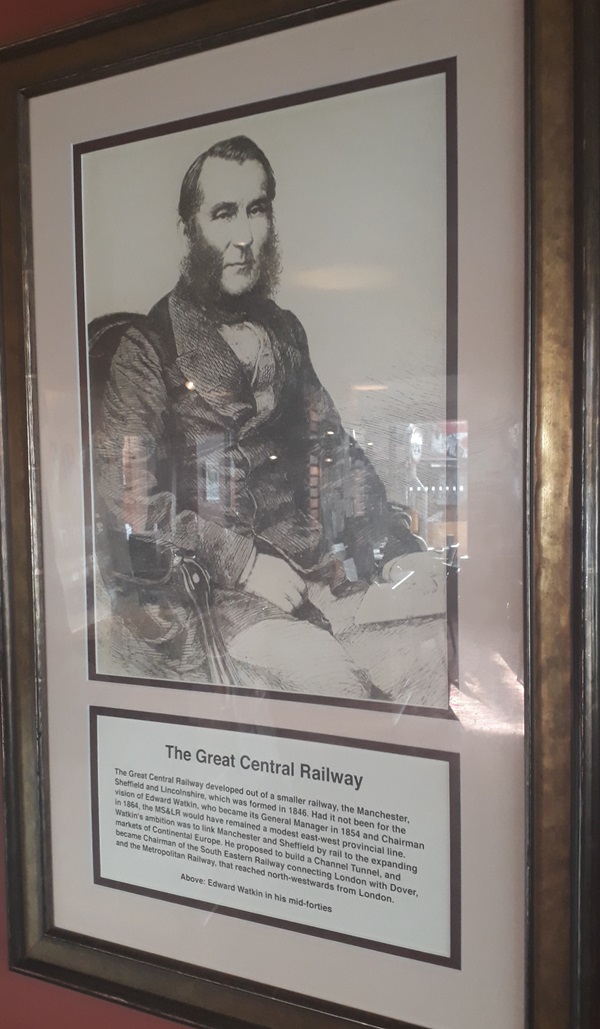
The text reads: The Great Central Railway developed out of a smaller railway, the Manchester, Sheffield and Lincolnshire, which was formed in 1846. Had it not been for the vision of Edward Watkin, who became its general manager in 1854 and chairman in 1864, the MS&LR would have remained a modest east-west provincial line. Watkin’s ambition was to link Manchester and Sheffield by rail to the expanding markets of continental Europe. He proposed to build a Channel Tunnel, and became chairman of the South Western Railway connecting London with Diver, and the Metropolitan Railway, that reached north-westwards from London.
Above: Edward Watkins in his mid forties.
A Great Central poster (left) and the timetable (right).
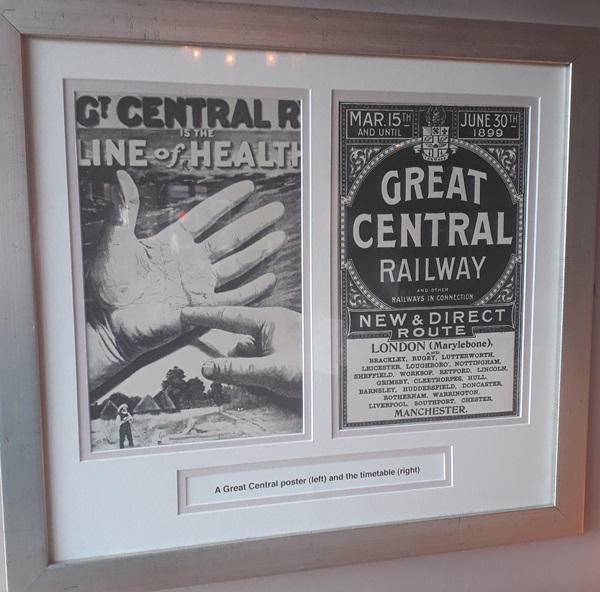
A photograph and text about Manchester Grammar School.
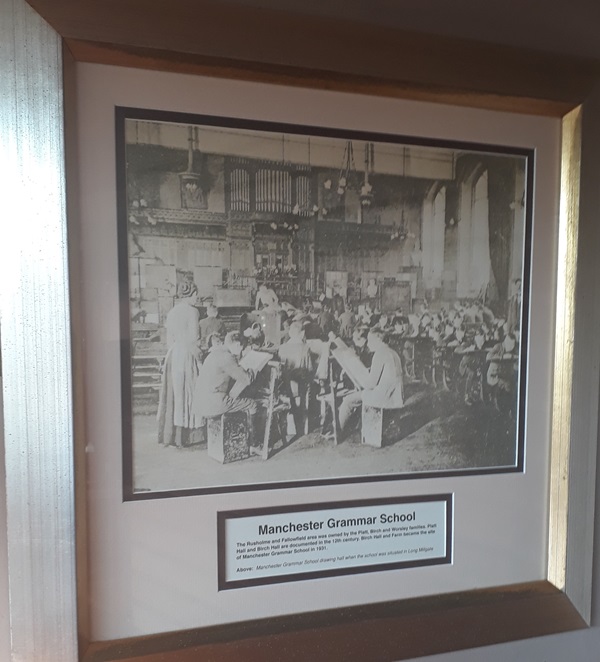
The text reads: The Rusholme and Fallowfield area was owned by the Platt, Birch and Worsley families. Platt Hall and Birch Hall are documented in the 12th century. Birch Hall and Farm became the site of Manchester Grammar School in 1931.
Above: Manchester Grammar School drawing hall when the school was situated in Long Millgate.
A photograph and text about Emmeline Pankhurst.
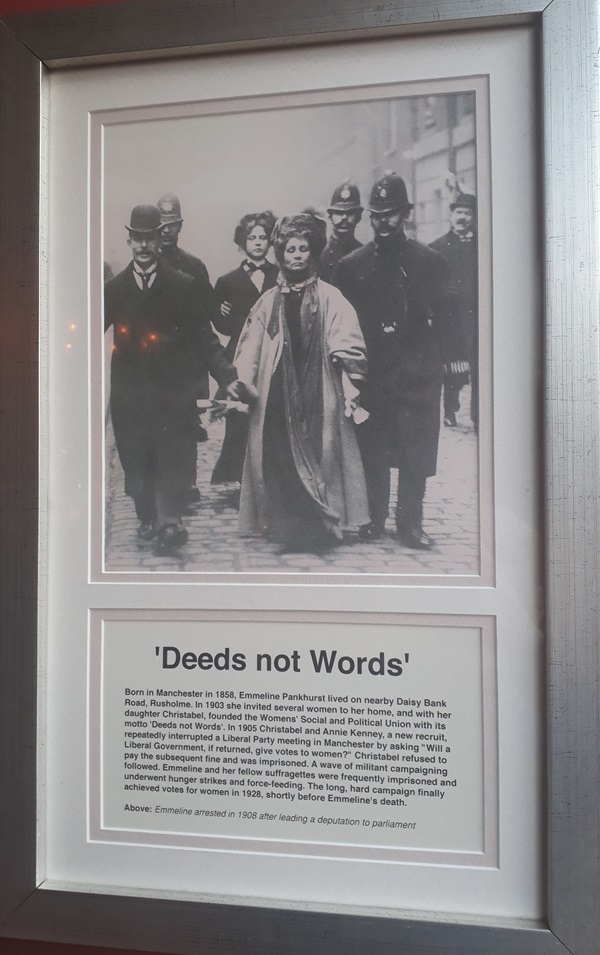
The text reads: Born in Manchester in 1858, Emmeline Pankhurst lived on nearby Daisy Bank Road Rusholme. In 1903 she invited several women to her home, and with her daughter Christabel, founded the Womens’ Social and Political Union with its motto ‘Deeds not Words’. In 1905 Christabel and Annie Kenney, a new recruit, repeatedly interrupted a Liberal Party meeting in Manchester by asking “will a Liberal Government, if returned, give votes to women?”, Christabel refused to pay the subsequent fine and was imprisoned. A wave of militant campaigning followed. Emmeline and her fellow suffragettes were frequently imprisoned and underwent hunger strikes and force-feeding. The long, hard campaign finally achieved votes for women in 1928, shortly before Emmeline’s death.
Above: Emmeline arrested in 1908 after leading a deputation to parliament.
A photograph and text about Fallowfield Stadium.
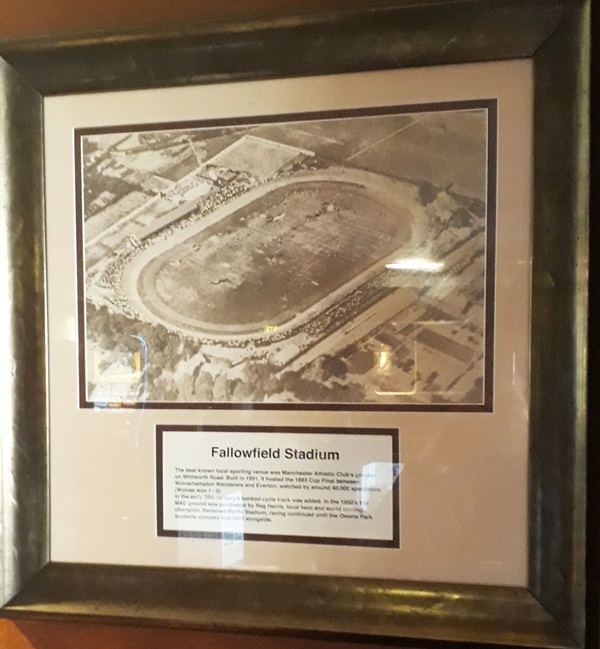
The text reads: The best known local sporting venue was Manchester Athletic Club’s ground on Whitworth Road. Built in 1891, it hosted the 1893 Cup Final between Wolverhampton Wanderers and Everton, watched by around 40,000 spectators (Wolves won 1 – 0).
In the early 20th century a banked cycle track was added. In the 1950s the MAC ground was purchased by Reg Harris, local hero and world cycling champion. Renamed Harris Stadium, racing continued until the Owens park student complex was built alongside.
An illustration of Owens College and the Manchester Museum, 1896.
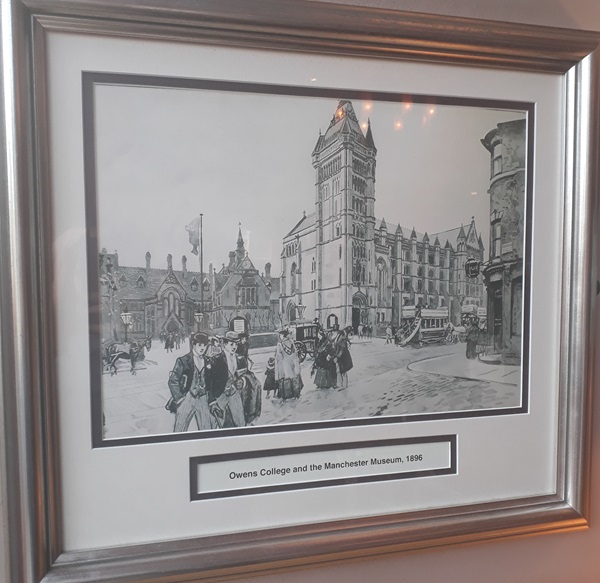
External photograph of the building – main entrance.
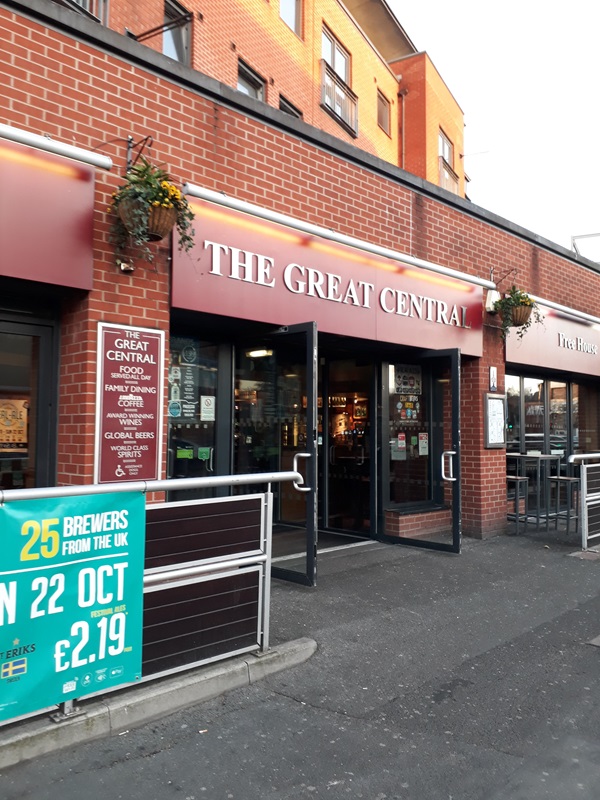
If you have information on the history of this pub, then we’d like you to share it with us. Please e-mail all information to: pubhistories@jdwetherspoon.co.uk